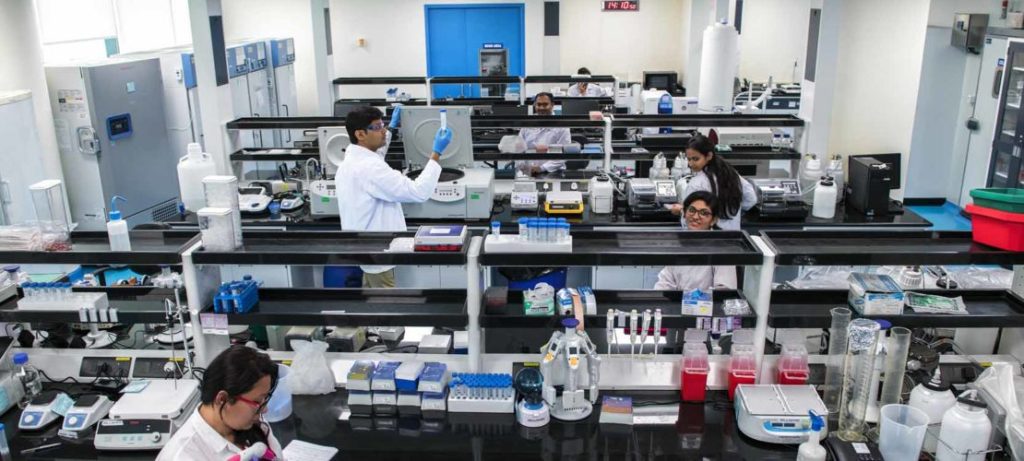
In 2019, Johns Hopkins University made headlines by launching the Center for Psychedelic and Consciousness Research, the first research institution of its kind in the United States dedicated to studying the therapeutic potential of psychedelics. While some reports have inaccurately cited the initiative as a $100 million project, the actual funding at launch was $17 million, secured entirely through private donations. The center represents a turning point in academic acceptance of psychedelics and positions Johns Hopkins at the forefront of what many see as a revolution in mental health care. The goal is to explore how substances like psilocybin can be used safely and effectively in clinical settings, offering alternative treatments for conditions that have long resisted conventional therapies.
Renewing the Scientific Study of Psychedelics
Decades after psychedelics were largely banned and dismissed by mainstream medicine, Johns Hopkins researchers began quietly reopening scientific inquiry into their potential benefits. Their earlier work, starting in the early 2000s, demonstrated that psilocybin could produce powerful shifts in consciousness, reduce anxiety in cancer patients, and support smoking cessation. With the launch of the center, this work expanded significantly, giving researchers the ability to explore a wide range of psychological, neurological, and spiritual outcomes in controlled environments. The center’s existence signals a renewed interest in deeply understanding how consciousness-altering compounds can be harnessed for healing rather than suppressed by outdated stigma.
Key Areas of Research
The center focuses its clinical work on a variety of pressing mental health conditions. These include treatment-resistant depression, anxiety, obsessive-compulsive disorder, post-traumatic stress disorder, anorexia nervosa, and various substance use disorders. One of the most notable research areas involves using psilocybin as part of therapy to help people quit smoking, a habit notoriously difficult to overcome. Other trials are exploring whether psilocybin can help individuals suffering from alcoholism or opioid dependence by shifting deeply ingrained thought patterns and enhancing emotional insight. Beyond mental illness, researchers are also studying how these compounds affect healthy volunteers, particularly in terms of enhancing creativity, well-being, empathy, and emotional flexibility. This broader lens reflects a growing interest not only in healing but also in the optimization of mental health and cognitive function.

A Multidisciplinary Team
The center brings together experts from psychiatry, neuroscience, psychology, and pharmacology to ensure that the research meets rigorous scientific standards. Initially led by Roland Griffiths, a pioneer in the modern study of psychedelics, the team includes a number of respected scientists such as Matthew Johnson, Albert Garcia-Romeu, and others who have contributed foundational research in the field. The presence of such a diverse and qualified team has helped the center gain legitimacy both within academic circles and among the broader public. Their work is not only reshaping scientific understanding but also influencing how the media and policymakers discuss psychedelics today.
Ethical Considerations and Public Engagement
Ethics are a cornerstone of the center’s approach. All trials are conducted with high levels of informed consent, careful screening, and professional supervision. In a landscape where the resurgence of psychedelics could be exploited or misunderstood, the center is setting standards for responsible communication and education. The researchers actively work to dispel myths, reduce hype, and ground public interest in science rather than speculation. This careful balance between openness and caution is crucial in maintaining credibility and ensuring the long-term viability of psychedelic-assisted therapy as a mainstream option.
Why This Matters
The creation of the center reflects a broader cultural shift. People are increasingly disillusioned with pharmaceutical solutions that treat symptoms but rarely address root causes. Psychedelics offer a different model—one focused on inner transformation, emotional insight, and the possibility of long-term psychological change after just one or two experiences. As regulatory agencies and healthcare providers take notice, research from Johns Hopkins could play a central role in guiding future therapeutic frameworks and medical policies.
Looking Ahead
As the center continues its work, the hope is that its studies will lead to new, approved treatments and eventually influence how mental health is approached on a global scale. While still in its early stages, this movement is gaining traction, and the research coming out of Johns Hopkins is helping to build a foundation for psychedelics to be integrated into modern medicine with care, precision, and lasting impact.